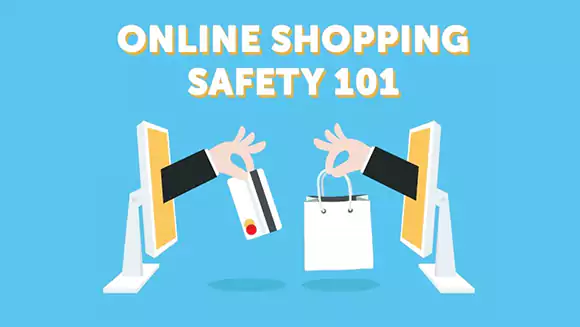
Online Shopping Safety Tips 101 For 2022
1. Online Shopping Safety – Skip the debit card
When shopping online it’s best to stick to credit cards or payment services like Paypal. Because debit cards are linked to your bank account, you’re at much higher risk if someone is able to hack your information. Credit cards offer more protection and less liability if a card number gets stolen. This is one time when it pays to put it on plastic.
Credit Cards / Gift Cards (#ad)
2. Shop secure sites only
Before entering any personal or financial information, make sure you verify that the site you are on is legitimate and secure. The easiest way to tell is to look for “https” and or padlock at the beginning of a site’s address. If you don’t see the “s” at the end of “http,” then the site is not encrypted and your data will not be secure. All legitimate shopping sites will have the “s” for your protection.
Secure Site Checker (#Free)
3. Update your software
Updating your security software is one of the easiest things you can do to protect your information, but many people put it off. Software updates are often released to help improve security and fight new attacks that are being developed constantly. It may seem inconvenient to have to wait for your computer (or your smartphone (#ad)) to go through updates and restart, but the protective benefits are well worth it. Next time you see an alert to update your software, do it.
Security Software (#ad)
4. Don’t click on links
In addition to sneaky attacks in emails, beware of links to deals that are too good to be true on social networking sites. Look out for unbelievable offers and holiday gifts and bonuses. If you’re really tempted by an offer, do some research or find out if anyone else has tried to take advantage of the deal before clicking.
Malware Software (#ad)
5. Beef up your passwords
There’s a reason this piece of advice may sound like a broken record — it’s really important. Secure, unique passwords are your best gatekeepers when it comes to keeping your private information private. If you use the same password for multiple sites, take the time to change them up. If you want to be virtually hack-proof, use a password manager to help you generate and keep track of the types of long, complicated passwords that are not worth a hacker’s time to crack.
Password Software (#ad)
Password phrases are becoming the top recommendation to protect your accounts. A phrase is easier for you to remember and it’s more complex, which makes it harder for a hacker to guess. Just make sure to follow all the other password best practices—and don’t use a common phrase or saying that could be easily guessed.
Norton Password Generator (#Free)
6. Never give more info than needed
Most websites you visit or shop on will ask you for information to complete your purchase or start a wish list. Give them only the information they require you to provide. If a complete address or phone number is optional, then skip those fields. The more info you put out there, the more accessible you are to a bad guy. And before committing your information to a site, take the time to read their privacy policy and find out exactly where and how your information will be shared.
CCleaner Privacy Cleaner (#Free)
7. Public Hotspots
Free hotspots are like manna from heaven when you’re out and about, but hackers like them even more than you do. Because public networks aren’t secured, any information you enter on a public network is ripe for the picking. Don’t log in to banking sites or payment sites like Paypal on a public network — and make sure that you are logged out of such sites on mobile devices before connecting to a public network. Use a VPN software tool from a public hot-spot.
NORD VPN Software (#ad)